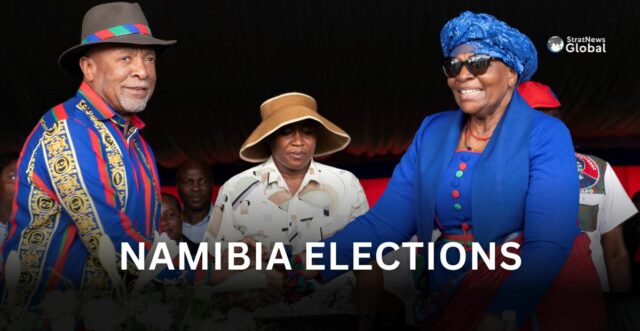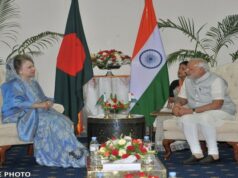Namibians will vote on Wednesday in what is expected to be the most competitive election yet for the ruling SWAPO party, which has governed the southern African nation for 34 years.
If SWAPO candidate Netumbo Nandi-Ndaitwah wins, she will become the country’s first female president. A SWAPO loss would mean the first transition of power to a new party since Namibia gained independence from apartheid South Africa in 1990.
Youth Frustration Hits SWAPO Support
High unemployment, corruption allegations and inequality have eroded SWAPO’s support, which fell to 56% in the 2019 presidential election from 87% in 2014. There are no reliable polls on how it might fare this time.
The frontrunner among 14 opposition candidates is Panduleni Itula, a former dentist who won 29% of votes in 2019 after splitting from SWAPO and now leads a new political party, the Independent Patriots for Change.
Namibians vote separately for members of parliament and for the president, who needs more than 50% of votes to win.
“This will be the most challenging and significant election after the first one of 1989,” Rui Tyitende, a lecturer at the University of Namibia, said.
He said the outcome would largely hinge on the turnout of young voters, who make up more than half the electorate and are more likely to back the opposition.
“Young people are disproportionately affected by unemployment, poverty and consumed with a deep sense of hopelessness,” Tyitende said.
Independence-Era Parties Challenged
Namibia is currently led by interim president Nangolo Mbumba, who took over in February after the death of former president Hage Geingob but is not contesting the election.
Namibia is an upper-middle-income country but has high levels of poverty and inequality, according to the World Bank.
A 2021 government report found that 43% of the population were living in “multidimensional poverty”, a measure that takes into account income as well as access to education and public services among other factors.
Namibia ranks second in the world for income inequality after neighbouring South Africa, World Bank figures show. Both countries spent decades under white minority rule.
SWAPO has struggled to distance itself from corruption scandals, although Nandi-Ndaitwah has never been implicated. Two former ministers are still on trial in the “fishrot” case, a major bribery scandal that surfaced in 2019.
“There is a possibility that the ruling party SWAPO could face a fate similar to the ANC in South Africa or the BDP in Botswana,” political analyst Ndumba Kamwanyah said.
South Africa’s African National Congress (ANC) lost its parliamentary majority in May and was forced into a coalition after 30 years in power, while the Botswana Democratic Party (BDP) lost an October election which ended its 58-year rule.
Across southern Africa, independence-era parties are contending with a younger population that does not remember the liberation struggle and is more likely to judge them on their record of service delivery and job creation, analysts say.
On SWAPO’s side are its deep roots in rural areas, well-established party machinery and the legacy of its fight against apartheid which still resonates with some voters, Kamwanyah said.
Election observers have generally said past polls in Namibia were fair and credible.
(With inputs from Reuters)





